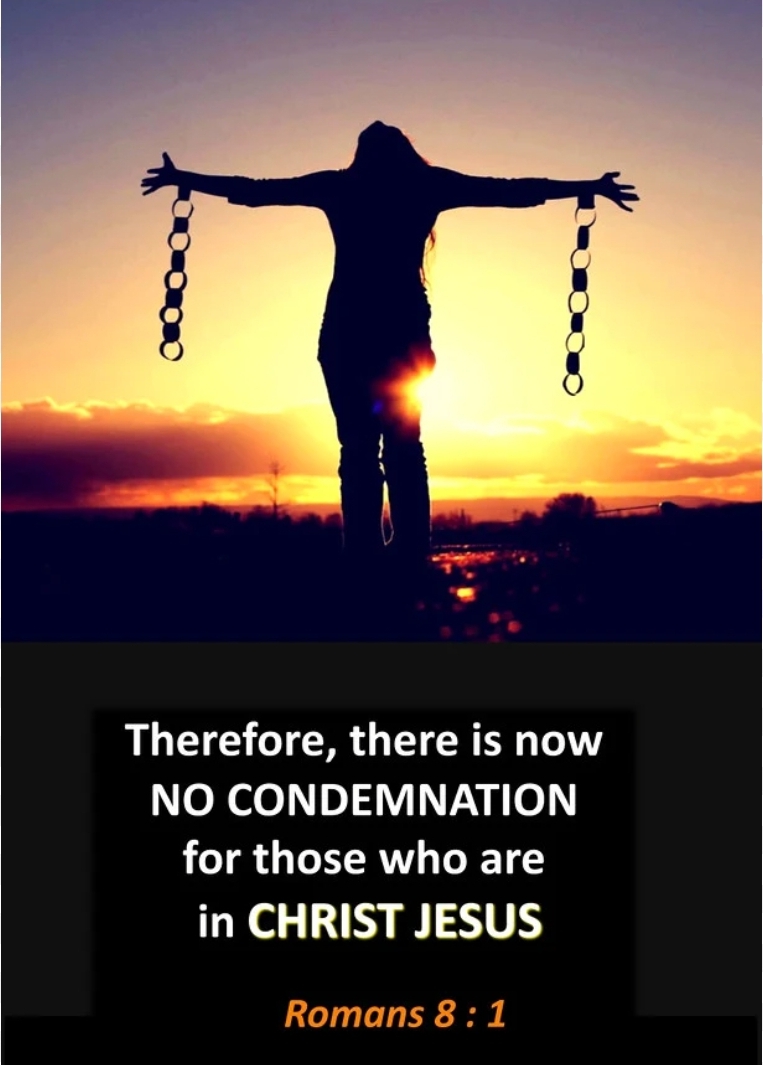
“There is therefore now no condemnation to those who are in Christ Jesus, who do not walk according to the flesh, but according to the Spirit.” Romans 8:1
If Christ, who holds all authority, is for us, then condemnation, oppression, and guilt have no hold on us. In John 5:8–11, Jesus heals a man who had been sick for 38 years. Instead of rejoicing, the Pharisees focus on the fact that the healing happened on the Sabbath. They chastise the man for carrying his bed, but he boldly replies, “He that made me whole, the same said unto me, Take up thy bed, and walk.” The message is clear: the authority of Christ far surpasses man-made rules. When we walk in the will of God and others misunderstand or judge us, we can stand firm. If Christ approves of our actions, the disapproval of men cannot undo the work He has done in us.
There are times when a faithful believer is judged or condemned—not because of any wrongdoing, but because others are bound by tradition. Often, when people criticise you, you don’t stop to examine whether their judgement is valid; instead, you see their stature or position and feel condemned. But if you’ve done no wrong, there is nothing to be forgiven. This is why we must grow in spiritual maturity and learn to disregard the weight of man-made expectations. As Paul writes in Colossians 2:16–17, “Let no man therefore judge you in meat, or in drink, or in respect of an holyday, or of the new moon, or of the sabbath days: which are a shadow of things to come; but the body is of Christ.” These things were only shadows—Christ is the substance. When we follow Him, we are free from the judgment of those who still cling to the shadow.
Redemptive transformation requires a renewal of the mind (Romans 12:2). Clinging to outdated or inherited thought patterns stifles growth. We must not be held back by limiting ways of thinking. Embracing a renewed mind is key to seeing a different future. If we desire change in our lives, it begins with thinking Christ-centred thoughts. Jesus is greater than the Temple (Matthew 12:6), greater than the Old Covenant, and greater than religious leaders like the Pharisees and Sadducees. I am saying, if Christ is for you, there is no condemnation—no need for guilt or fear when following Him.
Matthew 12:1–2 tells how the Pharisees criticised Jesus’ disciples for plucking corn on the Sabbath. The disciples, aware of the Pharisees’ presence, didn’t allow fear of condemnation to stop them. They followed Christ’s example. Jesus didn’t just confront the Pharisees with His authority, but with the Scripture itself. In Matthew 12:3–5, He asks, “Have ye not read…?” He refers to biblical examples, like David eating the showbread, to challenge their narrow interpretations. Jesus points out that even the priests technically “profane” the Sabbath by working in the temple, but remain blameless. In doing this, He exposes the hypocrisy of their thinking. The Pharisees read Scripture every Sabbath, but their hearts and minds were so clouded by tradition that they failed to understand its true meaning. We must read the Scriptures with open eyes and hearts, allowing the Word of God—not man-made rules—to guide our faith. Tradition should never replace the truth of God’s Word.
The Pharisees were blinded by their traditions and hardened in their hearts, fulfilling the prophecy of Isaiah in Matthew 13:14–15, which speaks of people who hear but do not understand, and see but do not perceive. When others resist truth due to prejudice or tradition, we must still stand firm in doing what is right. The blind spots of others should not deter us from walking in the light and following the truth of Christ.
